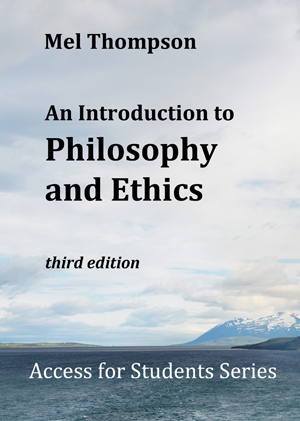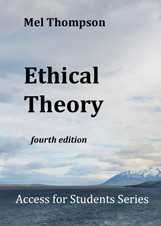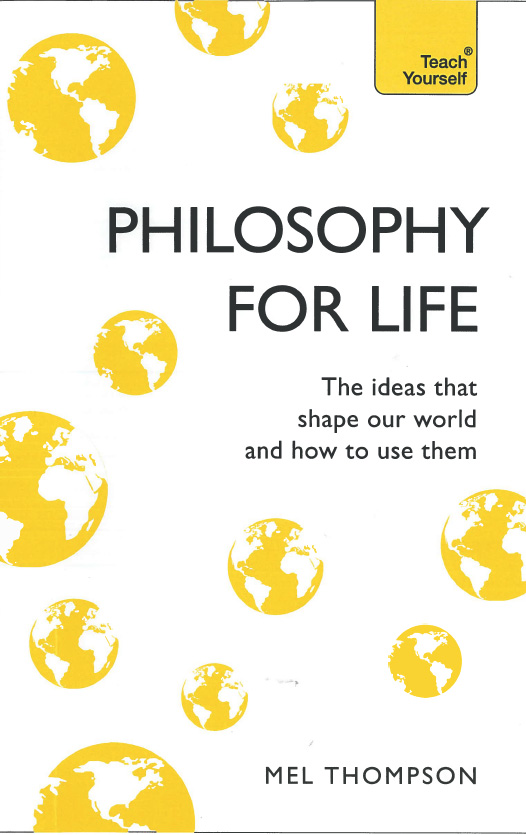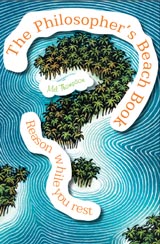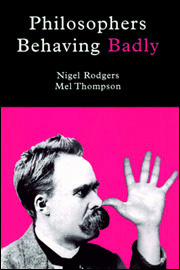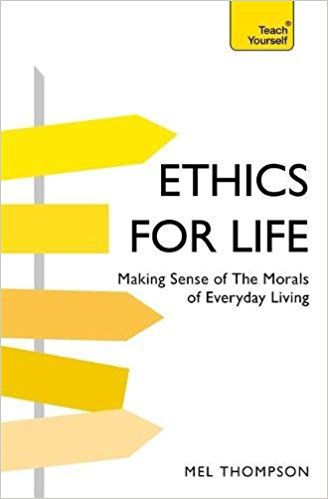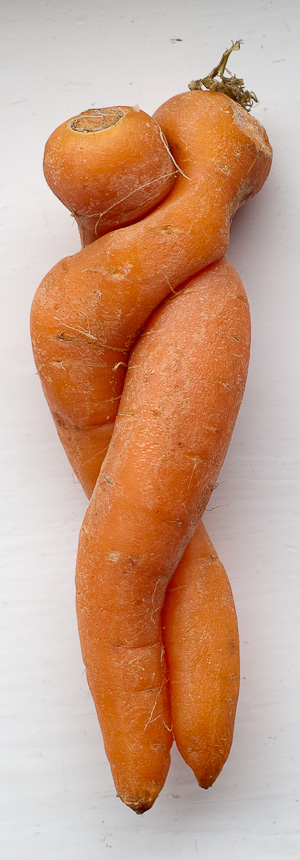 Reflecting on sexy carrots...
Reflecting on sexy carrots...
I've been reflecting on why I was amused to come across this pair of entwined carrots in the local supermarket.
In ethical arguments we always distinguish between the actions of inanimate things and those that are the result of human choice. The gun that is bought for self-protection can also be used for murder. The car, driven while under the influence of alcohol, becomes a lethal weapon. However, it is not the gun or the car that bears moral responsibility, but the human agent.
Carrots cannot be morally responsible or commit to relationships, which is why I found it amusing to see this pair apparently cuddling. The growth of a carrot is physically determined; end of story. But - and it is a major 'but' in ethical terms - it is still very difficult to prove that the actions of human beings are not equally determined by physical, biological, genetic and social forces beyond their control. We experience freedom and therefore accept responsibility for actions. With hindsight, however, and with a scientific or 'objective' approach to human action and motivation, the issue is far from clear. Might our experience of freedom be an illusion?
Personally, I am sufficiently attracted to Buddhist philosophy and existentialism to consider that our experience should be the starting point for philosophical reflection, not some apparently scientific or 'objective' account of events. The former is rich in moral, aesthetic, cultural and personal resonance; the latter tends to lead to a rather arid reductionism. For much of the 20th century, philosophy aped the success of science and sought to use empirical evidence as the criterion for claiming that a statement had meaning. They always did their philosophy differently on the Continent and in the East.
The problem is knowing how we engage with a world that can be described by science, without projecting onto it human emotions and intentions - as with the carrots. Everything we experience is shot through with personal elements of interpretation and intention. The tree is not just a tree but a source of shade, or fuel, or money. Several articles recently have pointed to the idea that religion might be quite useful although factually untrue. Whether you accept that position or not, there is a sinister and dangerous parallel - that free will and moral responsibility are also useful but factually untrue. However much we are analysed and described, we cannot allow ourselves to become objects. We are not carrots, and if we cuddle, it has (and creates) significance.


